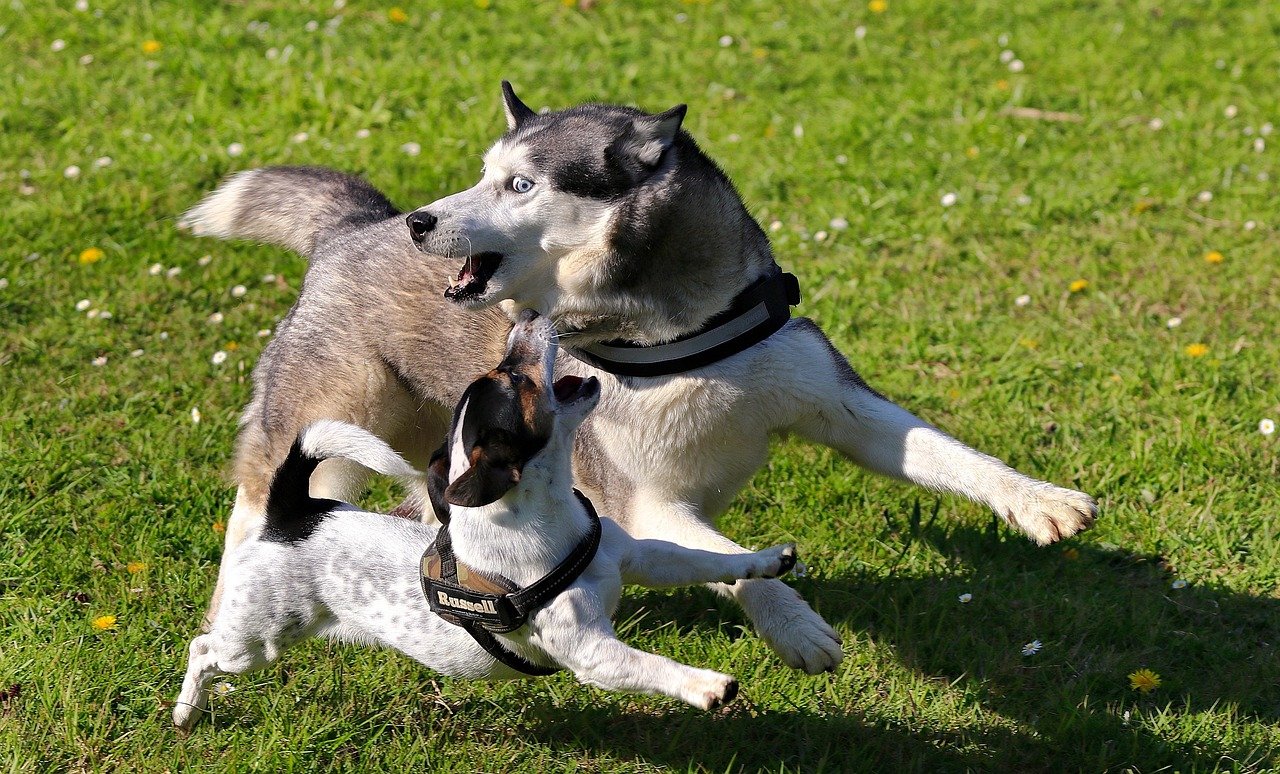Picture this: you’re walking through the park when a tiny tornado of white and brown fur comes racing toward you, tail wagging furiously and eyes sparkling with mischief. That, my friend, is probably a Jack Russell Terrier in action. These pint-sized powerhouses have captured hearts worldwide with their boundless energy and cheeky personalities, but as many new owners quickly discover, there’s so much more to these little dynamos than meets the eye.
If you’re thinking about welcoming a Jack Russell into your home or you’ve already fallen head over heels for one, you’re in for quite the adventure. These remarkable terriers aren’t your average lap dogs – they’re intelligent, determined, and absolutely bursting with personality. But here’s the thing: understanding what makes them tick can mean the difference between a harmonious household and complete chaos.
Their Sky-High Energy Levels Will Keep You On Your Toes

Let me be honest with you – Jack Russell Terriers were bred to hunt, so they have lots of energy and tend to have high energy levels requiring enough exercise to stay mentally and physically stimulated. We’re talking about dogs that need at least 1-2 hours of activity each day, incorporating a variety of activities like brisk walks, playtime in a secure dog park, and engaging games like fetch or tug-of-war.
These little athletes aren’t content with a quick stroll around the block. Without sufficient exercise, Jack Russells may resort to unwanted behaviors such as digging, barking, or chewing, as they seek ways to expend their energy. Think of it like having a sports car – you can’t just let it sit in the garage; it needs to be driven regularly to perform at its best.
Mental Stimulation Is Just As Crucial As Physical Exercise

Here’s something that catches many owners off guard – these dogs thrive on challenges that engage their minds, and without sufficient mental exercise, they can develop behavioral issues stemming from boredom. Your Jack Russell’s brain is like a high-performance computer that needs constant input to function properly.
The good news is that mental enrichment doesn’t have to be complicated. Puzzle toys that dispense treats can keep a Jack Russell entertained and mentally stimulated, while hiding treats around your home and encouraging your Jack Russell to sniff them out taps into their natural instincts and provides a fun way to exercise their minds. When inside, provide your Jack Russell dog with toys, puzzle feeders, and training sessions to challenge its mind and prevent boredom, which can lead to destructive behavior.
Training Requires Patience and Consistency Above All

While they are quick to learn, their independent nature and strong hunting instincts can make training a challenge for inexperienced owners, requiring consistent, structured training that focuses on clear commands and positive reinforcement. Think of training your Jack Russell like teaching a brilliant but mischievous child – they understand exactly what you want, but they might choose to do things their own way.
Be consistent! If not, you will confuse your terrier. Use positive re-enforcement techniques if possible; reward good behavior. They respond best to reward-based methods such as treats, praise, and interactive play, especially when training sessions are kept short, engaging, and mentally stimulating. The key is making training feel like a game rather than a chore.
Socialization Must Begin Early and Continue Throughout Life

Attend an obedience (i.e., puppy kindergarten) class to socialize your puppy. This isn’t just a nice-to-have – it’s absolutely essential. Socializing and training your Jack Russell Terrier is not negotiable, it simply must be done. Without proper socialization, you might end up with a dog that’s reactive or fearful in new situations.
Socialization helps in developing a well-rounded and well-behaved dog. Expose your Jack Russell to different people, animals, environments, and sounds, especially in their first few months. Early socialization is crucial for Jack Russells. Exposing them to various people, pets, and environments during their formative months will help them develop into well-rounded adults. Organizing playdates with other dogs or taking your JRT to pet-friendly events can help them learn appropriate behaviors and reduce anxiety in new situations.
Their Strong Prey Drive Can Create Challenges

Here’s something that might surprise first-time Jack Russell owners – bred specifically for fox hunting, these terriers have a strong prey drive. JRTs were bred to chase foxes and rodents. Because of this history, the breed has a high prey drive and can be aggressive toward small animals and cats. Always supervise your JRT around small animals.
When it comes to other pets, Jack Russells have a strong prey drive, making them less suitable for homes with small animals such as cats or rodents. However, with proper socialization and training, some Jack Russells can coexist peacefully with other dogs, especially if raised together from a young age. This doesn’t mean they can’t live with other pets, but it does require careful introduction and ongoing supervision.
Health Issues Require Proactive Monitoring

The Jack Russell Terrier breed is most prone to skin conditions (e.g., allergies, dermatitis) and joint problems (e.g., hip dysplasia, arthritis). Many Jack Russell Terrier owners report skin conditions like allergies, yeast infections, impetigo, ringworm, alopecia, and folliculitis. While these numbers might seem alarming, being aware of potential issues means you can catch problems early.
Eye problems such as hereditary cataracts are fairly common in Jack Russells. They can suffer from “Primary Lens Luxation,” a hereditary condition where the lens of the eye becomes dislocated. Jack Russells are particularly susceptible to dental issues, including tooth decay, gum disease, and tartar buildup. Regular dental care is essential to prevent these problems. Regular vet checkups and preventive care can help your furry friend live their healthiest life.
They’re Not Ideal for Every Living Situation

They are generally not recommended for apartment living without adequate exercise provision, and are not suitable for people who are out at work all day. They will get bored, and they will destroy your house. Boredom can also lead to behavioral problems such as separation anxiety and barking. These dogs need space to run and owners who can dedicate significant time to their care.
While Jack Russell terriers can be loving and loyal companions, their high energy levels and strong prey drive may not be suitable for all families, especially those with small children or other pets. Jack Russells are best suited for experienced pet parents who can keep up with their active lifestyles. Think of them as the sports car of the dog world – absolutely fantastic for the right person, but not everyone’s cup of tea.
Behavioral Issues Often Stem from Unmet Needs

Most behavioral problems are due to a lack of companionship, discipline, activity and exercise. When your Jack Russell starts digging up your garden or barking at everything that moves, they’re usually trying to tell you something. Jack Russells are pretty hyper by nature, but many are excessively hyper because their owners don’t help them release their energy. If your dog is excessively hyper, it very likely needs more exercise.
The solution often lies in addressing the root cause rather than just the symptom. Before you start hating your Jack Russell Terrier, there is one solution that fixes most of their behavioral problems: exercise. The two biggest reasons that Jack Russells bark is because of boredom or anxiety: Boredom can be easily fixed by giving your dog a variety of chews to entertain herself with. Try buying hollow nylon chews, which you can fill up with peanut butter, which works as a great treat.
Conclusion

Owning a Jack Russell Terrier is like signing up for the most rewarding adventure of your life – one filled with laughter, challenges, and an incredible bond with a truly remarkable companion. These spirited little dogs will push you to be more active, more patient, and more creative in finding ways to keep their brilliant minds engaged.
Yes, they require more effort than many other breeds, but the payoff is extraordinary. A well-exercised, properly trained, and adequately socialized Jack Russell becomes a loyal friend who’ll make you laugh every single day and love you with a fierce devotion that’s hard to match.
Remember, every behavioral challenge can be overcome with understanding, consistency, and patience. The energy that might seem overwhelming at first becomes infectious joy once you learn how to channel it properly. So, are you ready to embrace the beautiful chaos that comes with loving a Jack Russell Terrier?

Esther is from India; the heartbeat of South Asia, holding a Master’s degree in Zoology and a postgraduate diploma in Animal Welfare. Her enthusiasm for animal welfare drives her passion and dedication to working for animals, ensuring their well-being, and advocating for their rights. With a solid academic background and hands-on experience, she is committed to making a positive impact in the field of animal welfare. In her free time, she enjoys embroidery and sewing. As a Chennaite from Tamil Nadu, Esther loves Bharathanatyam, an Indian classical dance form.





